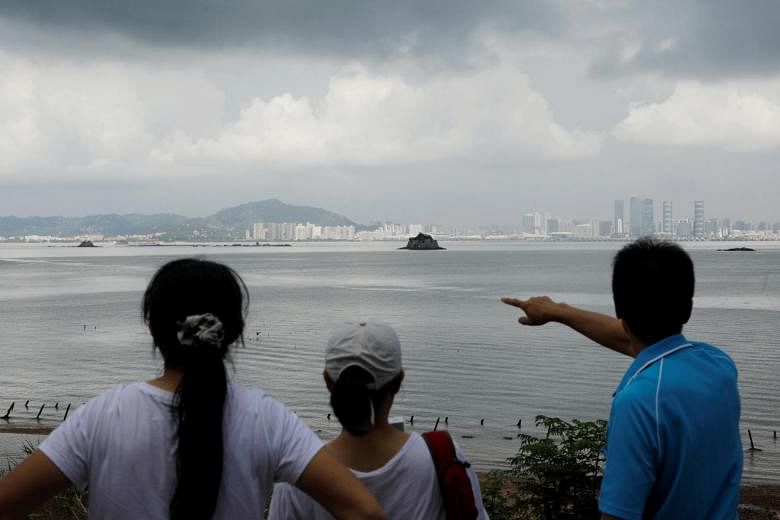Tensions over Taiwan have resurfaced and intensified in the last couple of years and mark the beginnings of a major strategic crisis, an Australian academic has said.
This crisis could erupt suddenly, sparked by an inadvertent escalation, such as a collision of military ships or aircraft in the Taiwan Strait, Professor Brendan Taylor said yesterday at the launch of his book Dangerous Decade - Taiwan's Security And Crisis Management, published by the International Institute for Strategic Studies.
It could also build gradually over the coming months and years as Beijing and Washington descend deeper into a new Cold War, he said.
"Life in this region as we know it could change quite dramatically if this Taiwan crisis is not prudently managed. And it is especially so for trade-dependent nations such as Singapore and Australia," warned Prof Taylor, who teaches strategic studies at the Australian National University in Canberra.
He pointed to Taiwan's loss of two diplomatic allies - Solomon Islands and Kiribati - to China this month as the latest manifestations of the intensification of tensions.
Ties across the Taiwan Strait, which were warm during the rule of China-friendly Taiwanese president Ma Ying-jeou, turned chilly after the independence-leaning President Tsai Ing-wen took office in May 2016.
Prof Taylor noted that both sides have hardened their rhetoric. In his January address on the Taiwan issue, Chinese President Xi Jinping delivered a stark message that the island must accept Beijing's preferred "one country, two systems" model for settling disputes or face military consequences. Ms Tsai responded by suggesting that Mr Xi must face the reality of Taiwan's existence as a free and democratic society.
Taiwan's Foreign Minister Joseph Wu tweeted in May that "democratic Taiwan is a country in itself and has nothing to do with authoritarian China", added Prof Taylor.
China has backed up its words with action, he added. In March, he said, two Chinese J-11 fighters breached the informal median line in the Taiwan Strait, the first time in two decades that such an incursion had occurred.
To this heightened tension, the US under President Donald Trump has added a layer of unpredictability, said Prof Taylor. For example, Mr Trump has signed into law the Taiwan Travel Act allowing US officials of all levels of government to meet their Taiwanese counterparts and the US navy is conducting monthly transits through the Strait.
However, said Prof Taylor, as China's military makes "great leaps forward", the US' ability to come to Taiwan's defence is eroding and could be gone in a decade. "As this window on America's ability to come to Taiwan's defence closes, I believe that the chances of a major crisis will intensify," he said.
As conflict over Taiwan would be one of the "worst imaginable" strategic crises in the region, "we should thus be doing everything in advance" to prevent it. "Countries such as Singapore and Australia could begin for instance by advocating more robust crisis management mechanisms perhaps in collaboration with others including Japan."
On a less pessimistic note, he said China is unlikely in the next decade to move militarily against Taiwan unless pushed into a corner as it does not have the capacity to do so.


